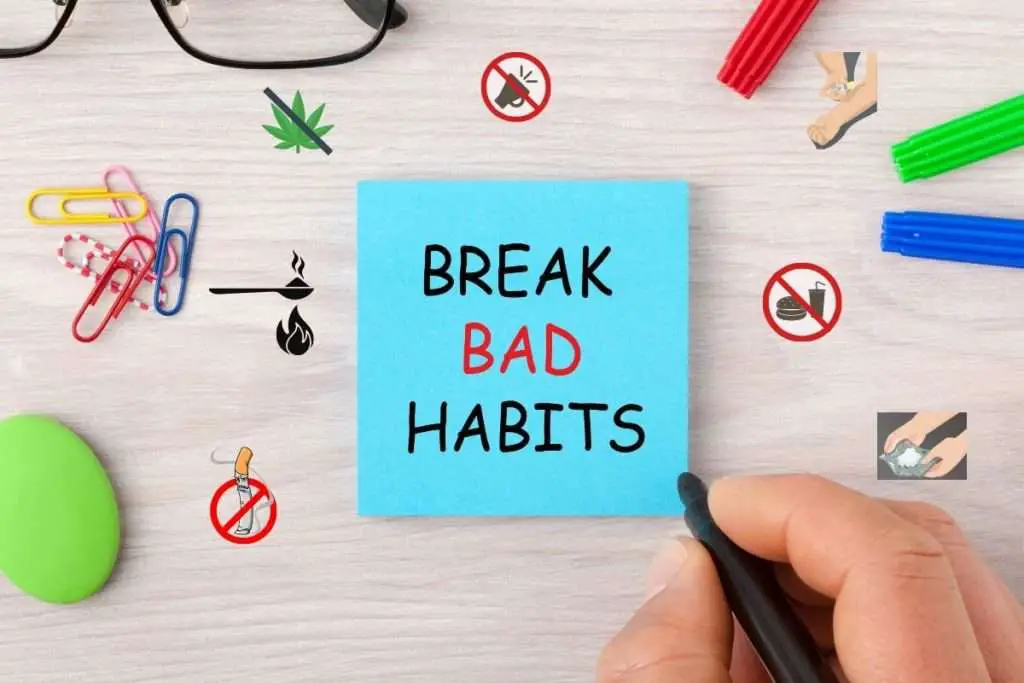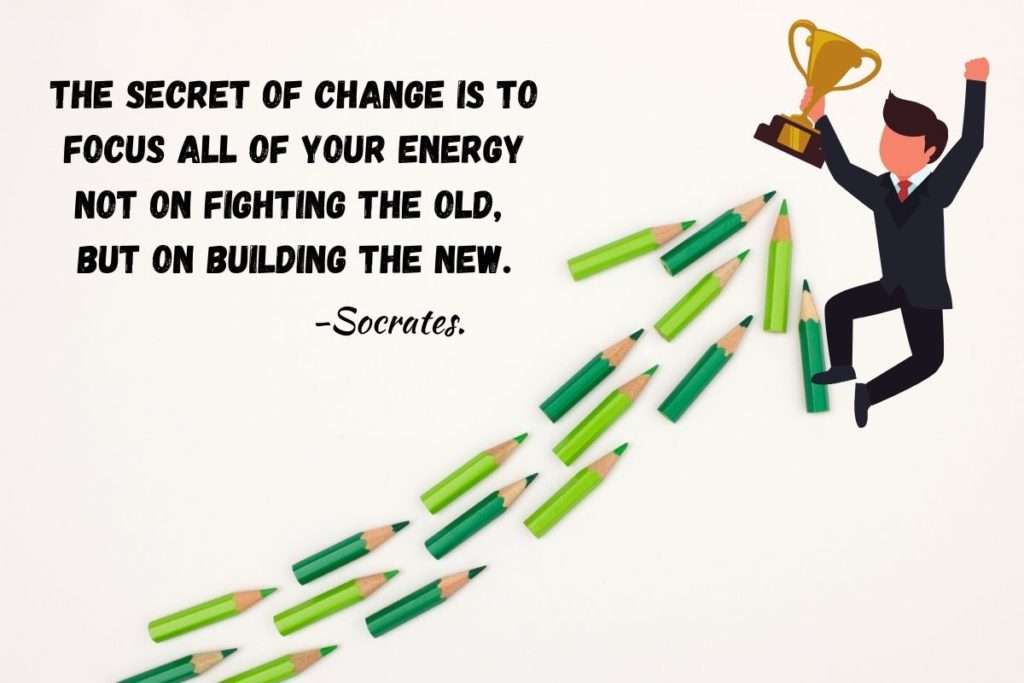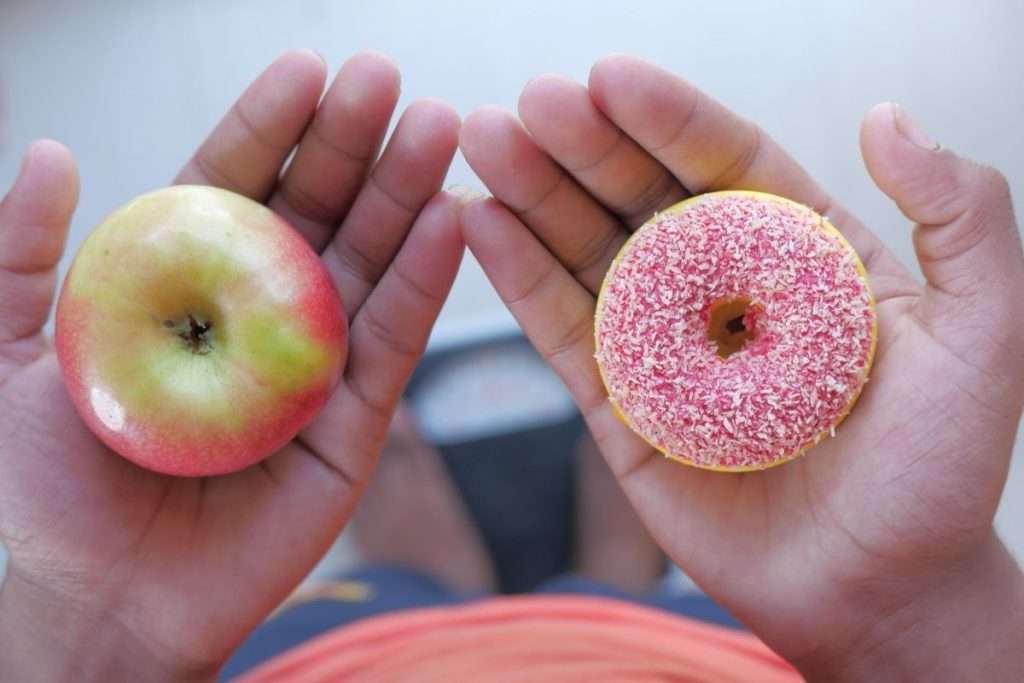Bad habits have a way of growing and expanding to consume several areas of your life; even in ways that are not so subtle.
Unfortunately, we are often more greatly judged because of our bad habits than our good deeds. That’s why it’s imperative that we discover how to break bad habits; especially the ones that are detrimental to our health and success.
Don’t get me wrong, I don’t believe we need to change specifically to please other people. However, we should at least consider eliminating – or at least managing – the habits that are simply eroding the positive aspects we’ve worked so hard to create.
Bad habits may affect you mentally, physically, emotionally and financially. Think about something that you constantly do – or don’t do – that may be preventing you from moving forward.
How has procrastination, pessimism, lack of confidence, etc. restricted you from being your best self?
Admittedly, eliminating a bad habit is no easy feat, especially when they become so embedded in your character that they seem almost natural.
In fact, even unconsciously, it’s all too easy to nurture these bad habits.
However, you’re in luck because you’re about to discover 10 bad habits and the very best strategies to break these bad habits.
Keep reading because this list may contain some bad habits that you’re not even aware of.
Bad habits and emotions can greatly affect health. Not only do they suppress your immune system but may increase the likelihood of heart disease and stroke.
- Bad habits have a way of growing and expanding to consume several areas of your life; even in ways that are not so subtle.
- What are the main bad habits that you need to break?
- How to Break Bad Habits
- 1.Have a passion for self-development
- 2.Understand why you initially started the toxic habit
- 3.Substitute the bad habit with a new behavior
- 4.Change the habit gradually
- 5.Eliminate the triggers of bad habits
- 6.Get started
- 7.Make it a routine
- 8.Stay motivated
- 9.Track your progress
- 10.Plan ahead
- 11.Get support
- 12.Visualize success
- 13.Reward yourself for staying committed to break bad habits.
- Final words on how to break bad habits
- Related Topics
- 1.Tolerating Mean People
- 2.The transtheoretical model of behavioral change
What are the main bad habits that you need to break?
A bad habit is a negative behavior pattern. It’s something you do automatically without thinking, which can ultimately negatively affect your life and relationships.
Now we’ll explore some of the most common bad habits, the effects that they have on your life, and the most essential targeted strategies to eliminate – or at least control – each of these toxic habits. Examples of some toxic habits
- Insecurity
- Excessive complaining
- Chronic worrying
- Unhealthy pride
- Procrastination
- Extreme regrets and self-blame
- Hatred
- Lack of organization
- Perfectionism
- Use of profanity
- Smoking/Alcoholism
- Unhealthy eating
- Excessive screen time
- Being a workaholic
- Living in denial

“You cannot change your future; but, you can change your habits and surely your habits will change your future.” – Dr. Abdul Kalam
| Bad Habit | Effects | Best Remedies |
|---|---|---|
| Insecurity | Decreased self-esteem, jealousy, self-doubt, indecisiveness | Address your fears and limitations, embrace your strengths, eliminate toxic people. Read more |
| Excessive Complaining | Stress, decreased memory, exhaustion | Acknowledge problem, change your view, focus on the solutions. |
| Excessive Worry | Stress, anxiety, headache, stomach and muscle aches, lack of concentration, low mood | Prioritize relaxation, decide if or what you can do about it, plan ahead. Read more |
| Unhealthy Pride | Demeaning others, ignorance/denial of own short-comings, arrogance | Recognize it, Appreciate others’ contributions, concentrate on purpose. |
| Procrastination | Decreased productivity, frustration, anxiety | Consider the consequences, Make schedule and reward yourself for sticking to it. |
| Self-blame | Shame, lack of self-esteem, excessive self-criticism. | Acknowledge the error and what you can learn from it |
| Regrets | Poor decision-making, anxiety, sadness, depression, guilt, shame | Apologize, channel emotions to something positive, don’t repeat the same mistakes. |
| Hatred | Anger, withdrawal, hostility, resentment | Empathize, communicate, establish boundaries. Read more |
| Unhealthy habits | Affects physical and mental health, decreases life expectancy and quality of life | Exercise more, adequate sleep, better eating habits, decrease smoking, alcohol. Read more |
| Excessive social media | Depression, anxiety, decreased productivity, cyberbullying, decreased self-esteem. | Set barriers, get new hobbies, delete some apps. |
How to Break Bad Habits
There are many ways to break bad habits and you certainly shouldn’t take a one-size-fits-all approach.
However, it’s important to understand that breaking bad habits is an ongoing process, one that takes a deliberate intent to start and constant motivation and support to continue.
Breaking a bad habit is especially challenging because habits become automatic and require very little cognitive effort.
Here are some general tips to break toxic habits:
- Have a passion for self-development.
- Understand why you adopted the toxic habit in the first place.
- Substitute the bad habit with a new behavior.
- Change the habit gradually.
- Eliminate the triggers of bad habits.
- Get started.
- Make it a routine.
- Stay motivated.
- Track your progress.
- Plan ahead.
- Get support.
- Visualize success.
- Reward yourself for staying committed.
1.Have a passion for self-development
Self-introspection is essential. You should be so dedicated to self-development that you are constantly motivated to commit your time and efforts towards identifying your bad habits.
After all, you can’t work on improving something that you aren’t even aware exists.
Self-development is not only about committing time to positive activities, but also understanding your shortcomings and recognizing that you are the only one who can change them.
2.Understand why you initially started the toxic habit
In order to break your bad habits, it is very important for you to understand the reasons why you developed this habit in the first place.
Various factors can contribute to developing a toxic habit and there isn’t just one way of breaking them all.
For instance, procrastination may be an outcome of the need for instant gratification, while addictions are often associated with stress and depression.
It’s essential to find your personal motivations so you can take the correct toxic actions and change your life for better.

“Denying what you feel will not make it go away. It ensures that it never gets resolved.” - Unknown
3.Substitute the bad habit with a new behavior
When you’re thinking of eliminating a bad behavior, try to replace it with a healthy habit that you’ll enjoy doing.
Having something that can consume the time and energy that you would’ve dedicated to that habit will make it a lot easier to quit.
Further, it will also minimize your changes of relapse. As such, find ways to make the substitution as enticing as possible. A pro-tip to successfully making the new behavior habitual is to make it as immediately gratifying as possible.
4.Change the habit gradually
Making a decision to change is crucial. It’s the first step to breaking your bad habit. When making a decision, it’s important to be realistic.
However, you shouldn’t expect a complete transformation overnight, but instead a gradual process that will eventually lead you to the desired outcome.
Changing a long-standing behavior takes time and patience. Like it or not, habits aren’t easy to break. That means you will need to commit to a process that takes time and patience. Is it worth it?
Absolutely! Breaking bad habits will ultimately improve your life, which is why you should be motivated to stick with the process as long as necessary. Even if you start slowly, if you’re consistent and committed you will eventually succeed.
5.Eliminate the triggers of bad habits
Embark on a mindful journey to understand why you’re engaging in bad behavior.
Identify all the persons, places – basically anything – that reminds you of that bad habit. Then, work on eliminating all the ones that you can. Avoiding the environment where the bad habit is done will help to eliminate the stimuli.
As much as possible, try to make the habit virtually impossible to do.
6.Get started
Even if you’re not completely ready, get started. Although you may take baby steps, you’re still moving and covering some ground. Having the courage to start may help you realize that you have the strength to continue.
However, breaking a bad habit requires lots of dedication, and energy. As such, make sure that you are really motivated to change it. But, remember that behavioral change is a process that usually takes a lot of time.
To successfully rid yourself of bad habits, you need the willpower and discipline to do so. The stronger your willpower and self-discipline, the more likely it is that you will achieve your goals.
7.Make it a routine
When you select the remedies to correct the toxic behavior, make sure you incorporate them into your daily routine. In fact, prioritizing the actions needed to accomplish change will help you create new habits faster.
Since most habits, even toxic ones, may be immediately satisfying, try to change the outcome of the habit so that it can become less enticing. Notably, the more unattractive the bad habit becomes, the faster it is for you to simply get fed-up doing it.
8.Stay motivated
Identify all the benefits of breaking a bad habit. Listen to others who have benefited from overcoming the same habit so that you can get the motivation to start and continue the journey.
Make sure your information is as precise and undebatable as possible. In fact, uncertainty relating to the benefits of breaking the bad habit may provide enough reason for you to continue.
Use affirmations to reinforce what you’re doing right and remind yourself why you’re trying so hard to stop the bad behavior patterns that may be harming your life and relationships.

“Chains of habit are too light to be felt until they are too heavy to be broken.” - Unknown
9.Track your progress
Track your progress and create a visual reminder of the positive changes you’re making so you can quickly recognize them when temptation strikes.
Tracking your progress will help you remain motivated and may even encourage you to find other areas of your life that needs improvement.
Also, by tracking your progress, you may be able to modify your plan as needed to ensure that you get better results. Breaking a bad habit is hard work so reward yourself even for small victories.
10.Plan ahead
Try to anticipate your barriers, any potential struggles and/or risks. Then you’ll be able to actively work on eliminating, controlling or finding ways to minimize the effects.
You need a targeted plan that is suitable for you and your situation. However, make sure that your plan does not seem too rigorous or stressful.
Most importantly, this plan should be something that you can stick to for the long haul. Imagine what your life would be like after your overcome this bad habit and visualize the consequences of continuing.
Bad habits will always try to sneak into your life. Have a plan and remain focused.
11.Get support
Find an accountability partner to help you stay on track and celebrate your achievements. Let them know your plan and ask for their support, advice, resources and encouragement.
Having someone on your side will give you the emotional boost that you’ll need to follow through with your efforts.
Having someone to encourage you and/or professional support are extremely helpful protective factors.
Additionally, there are numerous apps and resources that are geared towards behavioral change. As such, these can be useful for tracking your process and remaining motivated.
Remember that you are human and may always be vulnerable to slipping back to your old ways. Other individuals may be able to help you stay or get back on track.
Don’t underestimate the journey of changing bad habits. Utilize all the resources that are available to you. Surround yourself with positive influences.
12.Visualize success
Finally, visualize the change that you want to accomplish in your life and write that down. Create your dream board and make sure you’re constantly reminded of your goals.
Develop a clear image of how and who you want to be.
Never stop believing that your life is worth the effort and time it takes to make important changes like breaking toxic habits.
Remember that change takes time, so be patient with yourself. Be proud of each step you take towards your goals. Acknowledge all the positive decisions and changes that you’re making every day to break the bad habits in your life.
If you find it difficult to make these changes on your own, seek professional help or join a support group. Just never give up on yourself and always believe that change is possible!
Learn more about the personality traits needed to become a successful person.
Discovering how to break bad habits, will inevitably change your life.

“The most exhilarating achievement is breaking a bad habit.” - Unknown
13.Reward yourself for staying committed to break bad habits.
It’s important that this reward be something significant so it serves as a tangible reminder of the new behavior patterns you want to cultivate in your life.
Remember, bad habits can be life-threatening and difficult to break.
Celebrating your triumphs will keep you motivated!
So reward yourself every day for achieving small goals. However, it’s important to ensure that the rewards don’t jeopardize your efforts.
Related: The best tips to manage your child’s screen time.
Final words on how to break bad habits
Whew – you just learned everything you need to know about how to break bad habits that can ruin your life. But of course the magic elves aren’t going to take over from here.
And that’s why you need to start following these steps as soon as possible.
Now, typically I’d merely encourage you to take action, wish you the best of luck and cross my fingers for you. But, not today. Because today I’m going to challenge you to take that first step.
It all starts with you setting a goal and sharing it with someone. That’s right, you’re going to be held accountable.
Because this time you won’t fail. Do you dare?
Discover the best strategies to live a more meaningful life.
Related Topics
1.Tolerating Mean People
One type of people that you must not entertain in your life is the one that is mean to you and others. This may include persons who are manipulative, arrogant, judgmental, violent, and are constantly gossiping.
While it’s understandable that they may have a lot going on in their life, it is not a justification for their actions and is definitely not enough reason for you to continually keep exposing yourself to such toxicity.
After all, I’m sure you already have you fair share of stress; you certainly don’t need others to deliberately add to it. Thus, for the sake of your mental health, avoid mean people at all costs.
Social interactions can be a source of stress and negatively impact behavior and promote poor physical and mental health (Umberson & Montez, 2010).
2.The transtheoretical model of behavioral change
The transtheoretical model of behavioral change is one of the most useful resources for intentionally changing bad habits.
It will help you assesses if you’re ready for change and identify strategies to assist you through the six stages of behavioral change. Read more
References:
Jager, W. (2003) Breaking ’bad habits’: a dynamical perspective on habit formation and change. in: L. Hendrickx, W. Jager, L. Steg, (Eds.) Human Decision Making and Environmental Perception. Understanding and Assisting Human Decision Making in Real-life Settings. Liber Amicorum for Charles Vlek. Groningen: University of Groningen.
Umberson, D., & Montez, J. K. (2010). Social relationships and health: a flashpoint for health policy. Journal of health and social behavior, 51 Suppl(Suppl), S54–S656.
Rushana Greenidge-Horace










Leave a Reply